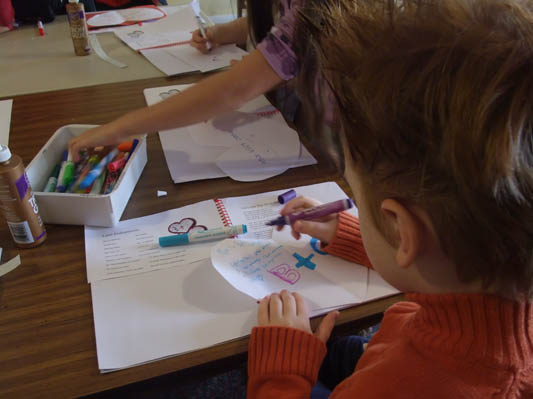
This post relates to my literature class for children at Homeschool Out of the Box co-op in Norfolk, VA. This semester we are reading The Aeneid, using Penelope Lively's book In Search of a Homeland, and other supplemental materials. For other lessons, please click the Aeneid tag at the bottom of this post.
Important dates:
March 2: Roman dinner party. We will wear tunics (girls) and togas (boys) and sample Roman food, listen to Roman music, play knucklebones, and vomit into buckets behind the pillows we’re lounging on.
March 23: Gladiator Games. We will have wild animals, condemned criminals, gladiators, guards, wealthy sponsors, and spectators at this exciting spectacle.
April 20: Chariot races. With wagons, helmets, and ropes, good cheer, and hope for sun, we are going to turn
May 11: Roman forum. In our classroom, we will recreate several elements of the Roman forum, including the Rostra, where volunteer orators will show off the stuff they’ve memorized during the semester, applauded by all.
May 18: Final day performance.
Welcome! I'm so happy to welcome you to this semester's adventure in ancient Rome. The Aeneid is the foundation myth for the Roman empire, and there is much to learn not only about the story of the poem itself, but also about Rome in the time of Virgil, when the Republic had come to an end and the Empire was just beginning to come into power. Rather than try and learn all about the Romans, we're going to focus our study on just this moment in time, when Augustus Caesar was in charge, and Virgil wrote the story of Aeneas to prove that Rome was founded on a Trojan ancestry, with a fine old tradition of warrior heroes and a proud heritage of strength and valor.
Reading: Each week you'll be reading one chapter in the Penelope Lively version of the story at home, until the book runs out. Then we'll be looking at some other material, including other translations and some art and modern interpretations. It is not necessary to bring the book to class each week, and we will not be reading it in class.
Scrapbooks: Your child received a spiral bound scrapbook in class. He/she will be filling it up with songs, projects, and eventually photos from the class. Academic track kids will be taking quizzes on the backs of the pages on which we glue the Fast Facts each week. They will also be creating a chart on the page that includes the Aeneid in Latin so that we can give them stamps as they memorize each line. Apart from those pages, any page in the book is okay for them to draw in, personalize, glue photos or pictures into, or whatever they'd like. These books should come to class with the kids every week.
Songs: This week we learned two songs, "I Sing of Arms and the Man" and "Let's Get the Heck Out of Troy." The first is an aid for us as we memorize the invocation to the muse (the first 12 lines) from the Aeneid in Latin. We only did the first half of it -- we will move on to the second half once we get a handle on those first few lines of the poem. The second song summarizes the action from the first chapter of the book, when Aeneas is leaving Troy with Anchises and Iulius, after those lousy Greeks burned the city.
Story: The academic track children mostly already knew the story of the Trojan war and the Trojan horse! That was awesome. We were able to have a great discussion comparing Virgil's version to Homer's version, and how the heroes from the two sides of the war would have been characterized in each one. Briefly stated, when we read the Odyssey the Greeks were the good guys, but now that we're reading the Aeneid, it's the Trojans that we're rooting for. In the enrichment track class, we talked about the Trojan horse, and the line in the song that says "Beware of Greeks bearing gifts." We talked about how that means that if someone's been beating you up and then suddenly they turn around and give you a present, you should be very very suspicious of that present.
Project: We made Latin valentines, using the Latin endearment sheet in their scrapbooks. We learned a bit about pronunciation of the different sounds (hard c, v sounds like w, etc.) as we pronounced the different phrases. Here they are:
Mea tu Belliata: My beauty
Amata mea: My beloved girl
Deliciae Meae: My sweetheart
Ego Amo Te: I love you.
Amor vincit omnia: Love conquers all.
Amantes sunt amentes: Lovers are lunatics
aut viam inveniam aut faciam: I’ll either find a way or make one.
Per aspera ad astra!: Through difficulties to the stars!
Nulli secundus / Nulli secunda: Second to none (male/female)



Fast Facts: Today's Fast Facts are about Roman symbols. The children were challenged to find some of these symbols in their everyday life. It's my hope that as we go through the semester they'll find more examples of how references to Rome pop up our lives, not just visually but in literature, language, and culture. For those of you who are wondering what a fasces is, here is a picture of a couple of guys carrying facses at a parade. Remember: "I can beat you with this stick, and I can chop your head off with this axe, so you better behave, because I'm the government!" Think we don't threaten our citizens with such hostile symbols? There are two in the House of Representatives and one in the Oval Office. Hmm. Interesting. Click for a bigger image.

No comments:
Post a Comment